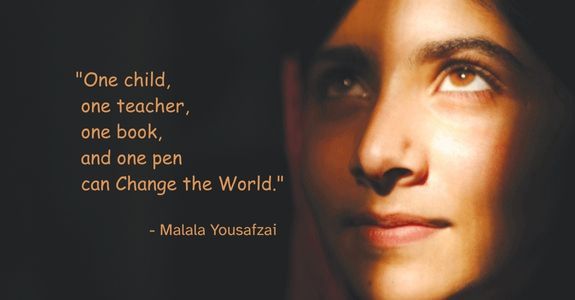Trending

“One child, one teacher, one book, and one pen can change the world.”
— Malala Yousafzai
Every year on July 12th, the globe celebrates Malala Day, which honors the birthday and activism of Malala Yousafzai, the youngest Nobel Peace Prize recipient and a global symbol of struggle for girls’ education. While her story is well-known for its incredible bravery, it also reveals a terrible reality: millions of girls continue to be denied the right to an education, despite legislation saying otherwise.
On this Malala Day, it is critical to study the legislative frameworks governing educational equality and investigate how they both support and undermine the battle Malala represented.
The Universal Declaration of Human Rights (1948) establishes education as a fundamental human right under Article 26, stating that “everyone has the right to an education.” This principle is reinforced by the Convention on the Rights of the Child (CRC) and the International Covenant on Economic, Social, and Cultural Rights (ICESCR), both of which emphasize states’ obligation to provide free and compulsory primary education to all children, without discrimination.
On a more current level, the United Nations’ Sustainable Development Goal 4 (SDG 4) seeks to “ensure inclusive and equitable quality education” by 2030. However, despite these legislative pledges, execution frequently falls short, particularly for females in developing countries where education is not only inaccessible, but actively discouraged or impeded.
Malala’s personal journey from a Pakistani teenager to a global campaigner is not only inspiring, but also instructive in terms of law. At the age of 15, she was shot in the head by the Taliban for merely going to school and arguing for girls’ right to do so. This attack was not just a moral atrocity, but also a clear violation of international human rights law, including her right to education, security, and freedom of expression.
Her narrative symbolizes the failure of both legal enforcement mechanisms and state protection, especially in areas where extremist organizations challenge state authority. Although Pakistan’s Constitution (Article 25-A) promises free and compulsory education for children aged 5 to 16, a lack of implementation puts millions of girls, like Malala, at risk.
When there is political will, legal frameworks can and do result in genuine change. Following international pressure and campaigning, especially from the Malala Fund, countries such as Pakistan have implemented education reforms. For example, new education efforts were initiated after 2013 to raise school attendance and address gender inequities.
Other nations have followed suit. In Kenya, a 2003 court verdict led to the adoption of free primary education, which had a direct impact on enrollment rates, particularly among girls. In India, the Right of Children to Free and Compulsory Education Act (2009) states that every child aged 6 to 14 has the right to a quality education, regardless of gender or socioeconomic status.
These instances demonstrate that legal instruments, when supported by strong institutions and resources, may considerably improve females’ education.
Despite global development, there are still gaps in both law and practice. In many nations, customary laws, child marriage, and patriarchal norms continue to hinder females’ educational rights. Even where education is legally free, additional costs (such as uniforms, transportation, or safety) and cultural biases serve as obstacles.
Furthermore, armed conflict and displacement continue to impair the education of millions of girls around the world. In Afghanistan, the Taliban’s erosion of females’ rights effectively reversed decades of legal and educational progress. This highlights the fragility of legislative protections in the absence of stable governance and international scrutiny.
To fully honor Malala’s legacy, nations must put legal pledges into action. This means:
Enforcing current education laws with measurable accountability.
Improving gender equality provisions in constitutions and national education policies.
Criminalizing threats or violence directed against kids and instructors.
Working with NGOs, civil society, and global organizations such as UNICEF and the Malala Fund to ensure that law improvements are backed by grassroots activity.
Furthermore, international organizations must hold countries accountable for failing to meet their education-related human rights duties. Legal activism, public pressure, and strategic litigation can assist bring about change in areas where policy alone is ineffective.
Malala Yousafzai raised her voice in defiance of violence and ignorance. Her experience demonstrates that education is more than just a right; it is a weapon against oppression. However, rights are meaningless without protective laws and enforcement systems.
On Malala Day, let us not only honor a hero, but also resolve to strengthen the legal foundation for every girl’s right to education. Because, as Malala reminds us, a single voice can ignite a movement, but worldwide legal action is required to ensure a future of equality and empowerment.
Adv. Abdul Mulla (Mob. No. 937 007 2022) is a seasoned legal professional with over 18 years of experience in advocacy, specializing in diverse areas of law, including Real Estate and Property Law, Matrimonial and Divorce Matters, Litigation and Dispute Resolution, and Will and Succession Planning. read more….
Copyright BlazeThemes. 2025